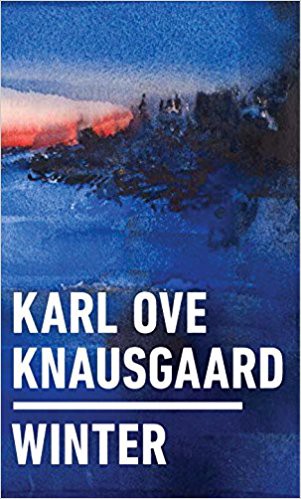interviews
Ethical Advice for Writing About Friends and Family
The Blunt Instrument takes on three questions about autofiction, memoir, personal essay, and whose stories you’re allowed to tell

The Blunt Instrument is an advice column for writers. If you need tough advice for a writing problem, send your question to blunt@electricliterature.com.
Dear Blunt Instrument,
I’ve been sitting on an essay that deals with an extended family member’s private story for about two years, and I’d like to send it out for publication. I think I’ll find a place for it, as it won me a competitive fellowship, and I’ve gotten positive responses each time I’ve given a reading from it. However, the potential reaction from my family is holding me back.
The family member I’m writing about is dead, and the essay is about an abortion she kept secret for many years and only revealed to one other person before she died — my mom. My mom then told it to me and, as far as I know, I’m the only other person who knows. I’m already planning to let my mom know I’ve included this story in something I’m writing and to hear her feelings about it. However, I also know sharing this secret in a public way will deeply hurt at least a handful of other extended family members, especially her sons, in part because of their own long-held prejudices. I love these family members and don’t want to hurt them, even if I believe their prejudices are misplaced.
I feel personally compelled to write about it, as hearing her story changed the way I think about myself and the world in major ways. I also want to honor her choice to have an abortion, which was brave and difficult. However, I don’t want to dismiss or discount her decision to keep it mostly secret during her life, and I don’t want to set off a proverbial bomb in the middle of my family.
I’m likely overestimating my family’s eagerness to seek out and read the things I write. That being said, if one person reads it, it will spread very quickly. Do I wait for these sensitive family members to die? Should I not publish it, for her sake or theirs? Do I need to warn them if I do? What are my obligations in this situation?
I appreciate any advice!
Dear Blunt Instrument,
I’ve written a memoir piece that is set to be published later this year. Everything I’ve published before has been fiction or criticism, nothing that made my personal life so public. I’d love to publish the essay and just hope my family never sees it, but they are fairly internet savvy and supportive of my work, so I know simply going under their radar is not realistic. The essay is about a difficult time in our family life we have rarely and only superficially discussed. So I’d like your advice on the best way to go about sharing it with them, perhaps prepublication, including practical questions like when in the editorial process to do it, how to set clear expectations and boundaries about what sort of changes I might be willing to make (basically none), etc., as well as anything else you think I should consider.
Thanks for the help!
Dear Blunt Instrument,
A few years ago I was successful in getting my first novel published, but now I face a very difficult choice with a follow-up. I’ve written what is ostensibly a memoir, but I am wondering if I should choose a different genre. I’ve been reading and hearing about “auto-fiction” and think it might allow for more flexibility in how I present certain events. I am worried, however, that auto-fiction might just be seen as an easy “out” from potential ethical complications and obligations. Also, it might diminish my aims if some readers feel that not everything is strictly “true” (recalled, as accurately as possible, from memory or diaries). I don’t want to cause harm, especially to some of the older characters (real people) in my narrative, but nor do I want to hold back. What are your thoughts on auto-fiction and ethics?

Secret keepers:
I have occasionally gotten two related questions for this column in close succession, but never three before now — clearly the ethics of memoir, or loosely disguised autobiographical fiction, are at the top of our collective consciousness. (Editor’s note: If you want to discuss these topics in person with other writers including Meredith Talusan and Susan Choi, consider applying for our program on autobiography and fiction in Banff!)
When the first of these questions arrived, the problem struck me as highly delicate and difficult, but time, as it does, had a clarifying effect. I believe there are only five paths you each can take — that doesn’t make your decisions easy, of course, but it does make matters fairly simple. Here are the options, with some historical examples to illustrate where each path might take you.
The first path is what I’ll call Biting the Bullet. You’ll need to make a list of all the people you know who could potentially be hurt or harmed if they read the piece, or if people they are in contact with read the piece. If you truly want to do no harm, you should send each of these people the piece before you publish it, explicitly seeking approval of the parts that concern them. This approach is risky because you may hurt them anyway, you may be forced to change or remove details you’re attached to, and you may not get their blessing in the end. But the best possible outcome is that, after conversation and compromise, you can publish your story as either memoir or autofiction under your own name and not have to worry about hiding it from your family or community.
Spend Two Weeks in Banff with Electric Literature
The second path I’ll call Burn Those Bridges. Some writers do decide that it’s worth it to them if they sacrifice certain relationships and alienate players in their story. (Others, I’m sure, don’t have the awareness to realize the harm their story might cause, but since you’re asking these questions, I know that’s not the case for you.) This path is an option available to you. While I can envision circumstances that make it attractive, I don’t think it’s ever entirely ethical. Nonfiction does not equal fact, but many readers will assume that your version of the story is the truth.
As an example, Ann Patchett wrote a book about her close friend Lucy Grealey after Grealey had died of an overdose. The book and the publicity surrounding it was deeply hurtful to Grealey’s sister Suellen. In an article for the Guardian, Suellen Grealey details the pain that Patchett’s writings about her sister caused her — one article characterized the death as a suicide, while a reading guide included a question about their mother’s parenting skills. “I cried almost incessantly with frustration,” she writes. It’s worth considering these unintended consequences (I don’t think Patchett wanted to hurt Grealey’s family) before rushing to publication.
While you’re coming to terms with the prospect of damaging lives, consider, also, your own motives. Vindictiveness is not a great place to be writing from; are you motivated by the drive to write a great book, or a wish to punish someone or absolve yourself from blame? There’s a danger that in score-settling, you’ll just write a bad book, lacking empathy and imagination. (I think of the first sentence of the author biography in the Penguin Classics editions of Turgenev’s fiction: Turgenev was born in 1818, in the Province of Orel, and suffered in his childhood from a tyrannical mother. Perhaps he did — I don’t know who wrote the bio — but I wonder what his mother would have said.) Before you Burn Those Bridges, I strongly suggest you get multiple opinions from uninvolved parties on whether or not publication is advisable. Don’t just tell these people about the piece — let them read it, in full.
Vindictiveness is not a great place to be writing from; are you motivated by the drive to write a great book, or a wish to punish someone or absolve yourself from blame?
The third path is to fictionalize the story, but this is only an alternative path if you truly fictionalize the story. “Autofiction” generally hews pretty closely to the details of the author’s life, so it’s likely, if you’re working in that genre, that you’ll need to choose between the two paths above regardless. (Karl Ove Knausgaard appears to have sent manuscripts of My Struggle to the real-life counterparts to his characters for approval, with sometimes hostile results.)
But there are plenty of novels with autobiographical underpinnings that don’t get labeled as autofiction. Evan S. Connell’s Mrs. Bridge is one example — he has said the titular character is based on his mother, but also that she was dying when he wrote it and she never read it. In a piece on autofiction for the New York Review of Books, Tim Parks writes that “Almost every character, every scene, every conversation, claims the critic and biographer Angus Wilson, every object even, in Tolstoy’s novels, can be traced back to something in his life. He is the most biographical of authors.” People are bound to speculate if there’s any overlap at all between your novel’s setting and characters and your actual life, but if you fictionalize carefully, you’ll at least have plausible deniability. (My husband, who writes fiction — I do not — adds that if you’re getting a story third hand, autobiographical fiction might be the best medium; a third-hand story has to fictionalize a little to remain compelling at that remove anyway.)
The fourth option, which is usually the least attractive to authors, is to publish anonymously or under a pseudonym. The Bell Jar is deeply autobiographical, and Sylvia Plath chose to publish it under a pseudonym in England; it was not published under her own name until 1967 (she died in 1963) or in the U.S. until 1971, in accordance with her mother’s and Ted Hughes’ wishes. The Incest Diary is a recent example of an anonymous memoir, which was much too sensitive for the author to consider attaching her name to. The trade-offs here are pretty clear. You won’t win fame or notoriety, unless you’re exposed or choose to (sorry, Clue reference coming) expose yourself. But you’ll still get your share of the profits if it sells, and the risk of damage is much lower.
The last option, as one of you already mentioned, is to wait until everyone’s dead. (Well, not everyone everyone, but everyone on your “bite the bullet” list.) Even in this scenario, the ethics can get a little fuzzy — if you promised someone that you’d never write about their secret, do you have to keep that promise even after they’re dead? Quite honestly I don’t know; I’m a writer, not an ethicist! But whether you go down this path, or any of these paths, ultimately comes down to what you can live with. You need to balance the potential rewards of publishing against your potential regrets.
I hope this helps you make the right decision, in each of your cases.










